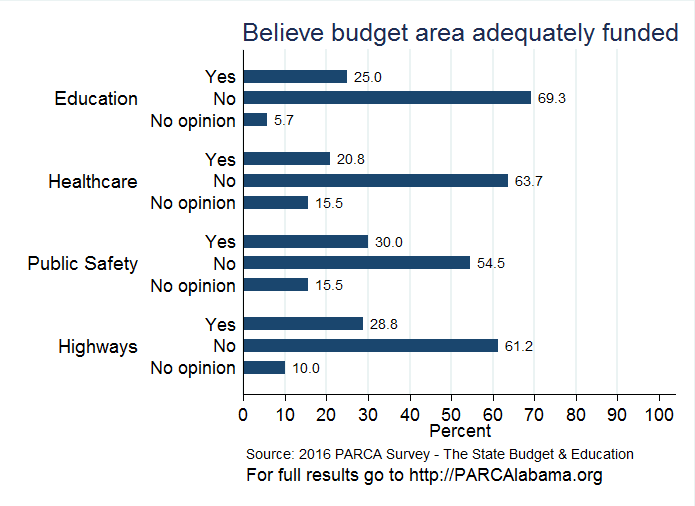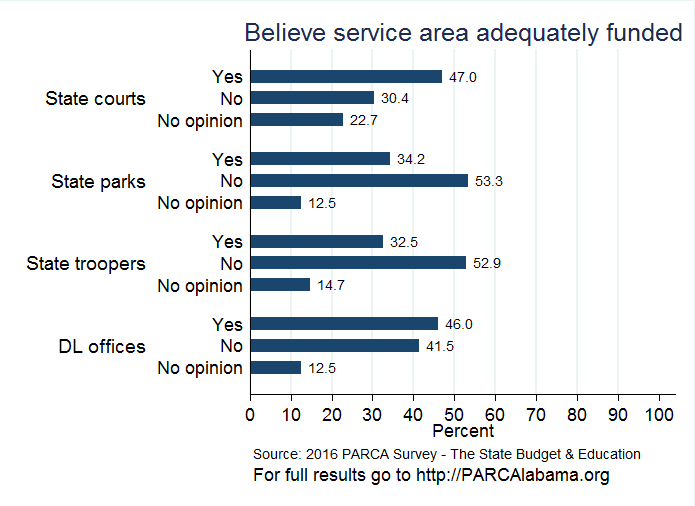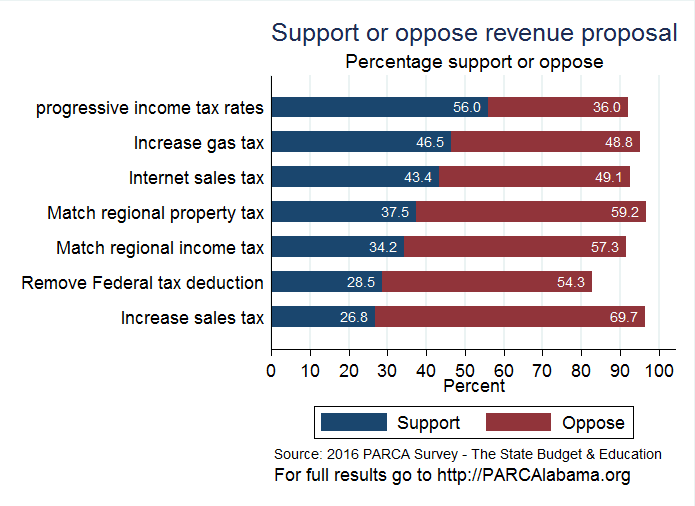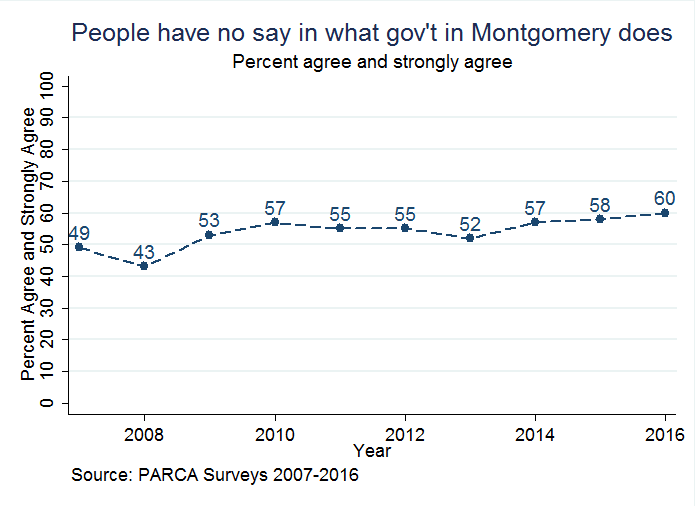Majority of Alabamians Willing to Pay More for Education and Healthcare
A majority of Alabamians believe key state services are not adequately funded and would be willing to pay more in taxes to avoid cuts in education and healthcare for the poor and elderly. That’s among the findings of an annual public opinion survey conducted by the Public Affairs Research Council of Alabama. However the research group found Alabamians are less willing to support tax increases to raise revenue.
About 48 percent of respondents say education is the most important service provided by the state with healthcare for the poor and elderly following at 31 percent. Majorities also believe education and healthcare, along with other key budget items, are not adequately funded.


The expressed support for education is long-standing says Samford University political scientist Randolph Horn. He oversaw the PARCA survey.
“One question we’ve asked dates back over 20 years and Alabamians consistently report that they think education should be better funded,” says Horn.
But those responses are in the abstract. When it comes to specific revenue measures to maintain or increase funding for state programs, support is much lower.

This year’s survey asked about expanding Medicaid under the Affordable Care Act. Governor Robert Bentley says he’s opposed to expanding Medicaid in its current form, although he’s softened his language against it over the last year. The PARCA research shows a majority, about 54 percent, support expanding Medicaid. But the support splits when considering political party.
 Horn emphasizes the survey results have been mostly the same through the years, but there does seem to be a trend when it comes to what residents think of state leaders in Montgomery.
Horn emphasizes the survey results have been mostly the same through the years, but there does seem to be a trend when it comes to what residents think of state leaders in Montgomery.
“There’s evidence that there’s an increasing sense of alienation from state government,” says Horn.


Additionally, about 60 percent believe earmarking revenue is good. Much of state revenue is earmarked leaving state lawmakers less flexibility in appropriating funds.
Overall, Horn says the survey responses don’t vary much by demographic groups.
“In that way the public seems to be different than some of the elites in politics or political leaders,” says Horn. “They are trying to distinguish themselves from each other or one party or the other. We see a lot of unity in the public.”
The phone survey was conducted from January 4 to January 21, 2016. It has a margin of error of +/- 4.5 percent. You can find more results from the survey here.
Birmingham is 3rd worst in the Southeast for ozone pollution, new report says
The American Lung Association's "State of the Air" report shows some metro areas in the Gulf States continue to have poor air quality.
Why haven’t Kansas and Alabama — among other holdouts — expanded access to Medicaid?
Only 10 states have not joined the federal program that expands Medicaid to people who are still in the "coverage gap" for health care
Once praised, settlement to help sickened BP oil spill workers leaves most with nearly nothing
Thousands of ordinary people who helped clean up after the 2010 BP oil spill in the Gulf of Mexico say they got sick. A court settlement was supposed to help compensate them, but it hasn’t turned out as expected.
Q&A: How harm reduction can help mitigate the opioid crisis
Maia Szalavitz discusses harm reduction's effectiveness against drug addiction, how punitive policies can hurt people who need pain medication and more.
The Gulf States Newsroom is hiring a Community Engagement Producer
The Gulf States Newsroom is seeking a curious, creative and collaborative professional to work with our regional team to build up engaged journalism efforts.
Gambling bills face uncertain future in the Alabama legislature
This year looked to be different for lottery and gambling legislation, which has fallen short for years in the Alabama legislature. But this week, with only a handful of meeting days left, competing House and Senate proposals were sent to a conference committee to work out differences.







